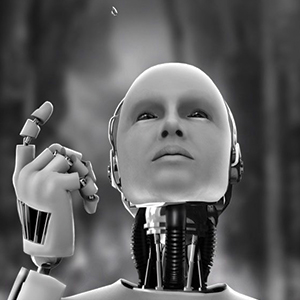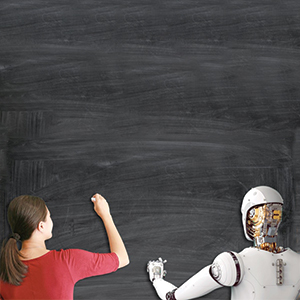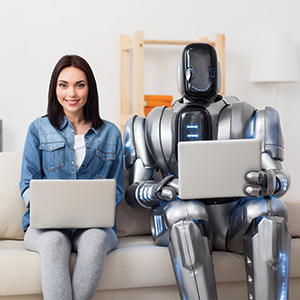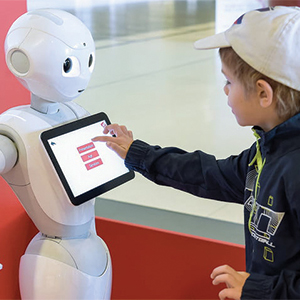
From Digital assistants like Siri and Alexa to algorithms that suggest what music to listen to on Spotify, Artificial Intelligence in varied forms is gradually becoming a part of our everyday lives. The future of AI could be profoundly witnessed by the nation when during the 2018 Budget presentation; Finance Minister Arun Jaitley informed that Niti Aayog will initiate national programmes on AI. The pace at which AI is gaining popularity, it won't be exaggerated to say that the day is not far when AI will impact every sector. Among all the sectors, AI will significantly show its presence in the education sector in coming years. Benefiting both the institutions as well as students AI can bring wonderful changes to the current education system.
In 2016 when a Georgia Tech professor Ashok Goel hired Jill Watson, a teaching assistant which was actually an artificial intelligence bot who used to message students about assignments and due dates, it became the talk of the town. The responses were brief but informative; Jill helped greatly to lighten the load on the eight other human teaching assistants of Goel's. While in-class applications like intelligent tutor systems and AI teaching assistants already entered the market, there are more to come. Like computers and the internet, AI will alter both the face and function — the what, why, and how — of education. Few changes that can be predicted in education through AI can be discussed below-
Grading System may get remodeled:
The Indian education system vastly works on a grading system from school to higher graduation. This becomes a tedious job for teachers to prepare a grading sheet time and again for each student. It also is a time-consuming task for teachers where they don't get to focus on the class activities fully. It is not far when AI will be able to take over this by helping to automate the grading for all types of multiple choice questions, fill in the blanks types of questions and so on.
 Replacement of Teachers:
Replacement of Teachers:
Although it would be wrong to say that AI can completely replace teachers, but in the pace on which it is developing, it can be assumed that AI will be able to take care of the basic teaching sessions. Here teachers can stay as a facilitator to help where AI falls short or can provide assistance to students who are weak. This will fill the need of human interaction and help teach students in the most advanced manner. The problem of shortage of competent teachers can be also tackled with the advent of AI.

Point out the week elements in the course:
Giving effective feedback is a vital part of the communication whether it is for teachers or students. There might be some area where students are not performing well, in this scenario AI can alert the teachers where more efforts are required. This will considerably help the teachers to work on the voids and enable students to perform better. Some schools offering online courses are using AI systems to keep an eye on the student progress and let know professors regarding any issue with student performance.

Customized Curriculum:
With the help of AI according to industry experts, there will be a highly personalized education system where children will be able to learn via one-to-one tuition delivered via digital devices. Such a tailored system would allow children to learn more quickly. The traditional textbook learning will get obsolete with the introduction of new custom textbooks which will lead to effective learning and more innovation.